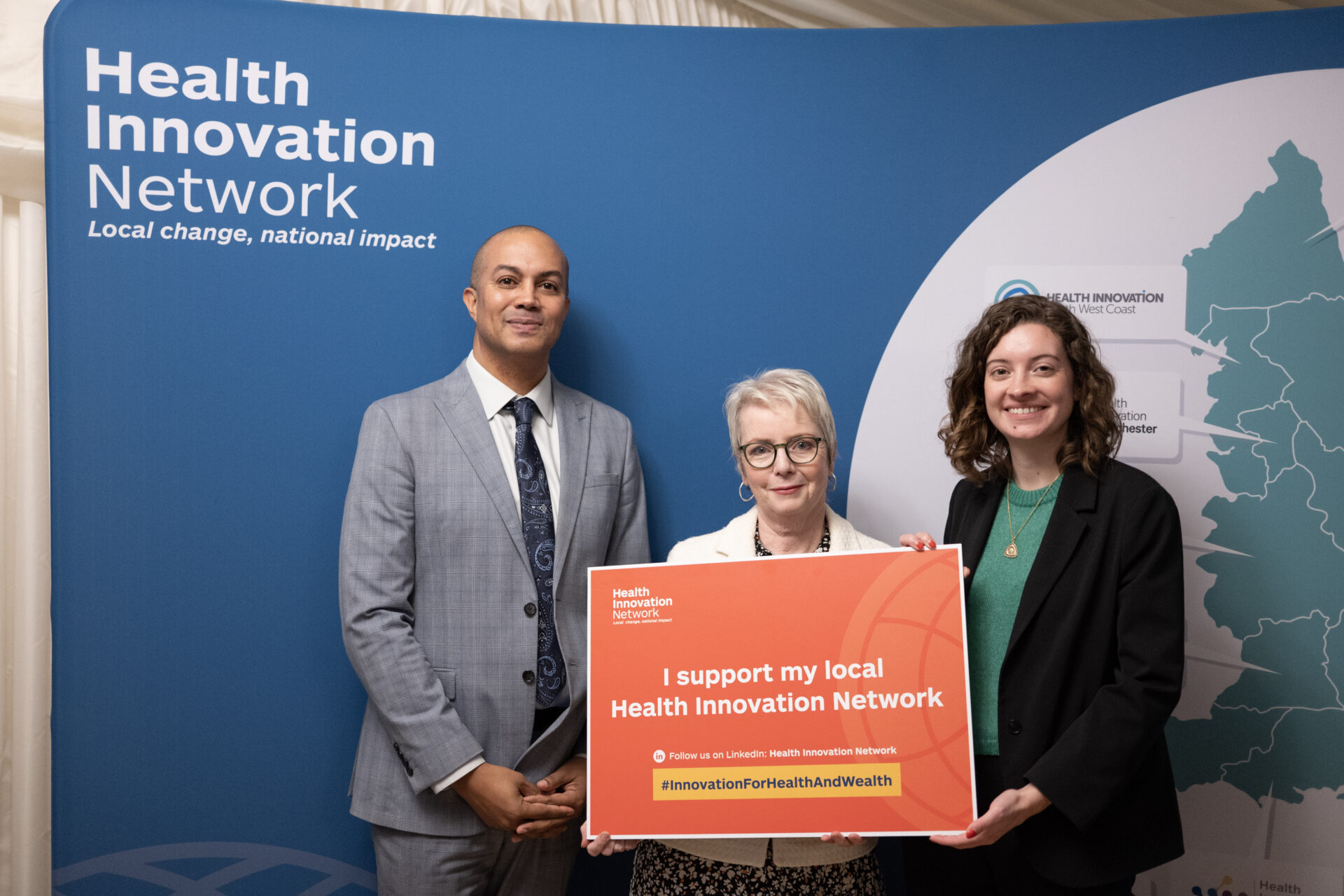SBRI Healthcare, an Accelerated Access Collaborative initiative, in partnership with the Health Innovation Network, has awarded £2.5m to five innovative companies helping to narrow inequalities in maternity care, including Latchaid and The Real Birth Company.
Latchaid, an innovator supported by Health Innovation West of England, received £500,000 for Anya, a smart, scalable, and accessible solution for antenatal and postnatal support to address health inequality in maternity care.
The Anya app leverages cutting-edge Artificial Intelligence, 3D interactive technology, and leading healthcare specialists to provide personalised information/education, communities, and 24/7 support in one place, from conception to toddlerhood for 1001 days.
The Real Birth Company, an innovator supported by Health Innovation Kent Surrey Sussex, and which won the award for Innovation in Helping Address Health Inequalities at the Innovate Awards 2023, was awarded £495,154. It will be used to fund the implementation, evaluation and development of The Real Birth Digital Programme. This will enable the creation of hyper-personalised childbirth information tailored for marginalised groups.
While the UK is among one of the safest places to give birth, maternity care is impacted by health inequalities. Black and Asian women are more likely to die during pregnancy, and childbirth and poor pregnancy outcomes such as preterm birth, foetal growth restriction, and stillbirth, disproportionately affect Black and Asian women from the most socio-economically deprived backgrounds.
One in four women experience mental health difficulties during, or in the 24 months following pregnancy, and maternal mental health challenges are associated with both large and lasting personal and societal costs. Progress has been made through the NHS Long Term Plan, the Maternity Transformation Programme, and the Core20PLUS5 initiative, and SBRI Healthcare launched Competition 20 – Health Inequalities in Maternity Care in May 2022.
Professor Wendy Tindale (Panel Chair), Director, NIHR Devices for Dignity MIC; Scientific & Innovation Director at Sheffield Teaching Hospitals, said: “The SBRI Healthcare awards are another step forward in helping the NHS deliver its Long Term Plan commitments for maternity care. All the projects we assessed were of a very high standard and this next phase of funding will be used to develop and evaluate prototypes, and build evidence for future uptake and scale. Crucially these innovations help tackle health inequalities in maternity care and support the national NHS England Core20PLUS5 approach. I look forward to seeing them progress to benefit parents and their families across the UK.”
Verena Stocker, Interim Director of Innovation, Research, Life Sciences and Strategy, NHS England and Chief Executive Office, Accelerated Access Collaborative, said: “The SBRI Healthcare awards help the NHS to develop new technologies and solutions to address some of the biggest healthcare challenges facing society. We have selected these innovations because they have the potential to make a big difference to patients by helping to reduce healthcare inequalities in those communities most affected. By supporting the most promising innovations the NHS will continue to evolve, helping to meet more patients’ needs and encouraging more innovators to come forward with innovative ideas that benefit all.”
Russ Watkins, Economic Growth Director at the Health Innovation Network, said: “The Real Birth Company and Latchaid are two brilliant companies that have demonstrated the value of innovation in helping to tackle health inequalities.
“The NHS is facing wide-ranging challenges, and this type of funding provides essential support to companies so they can invest time and resources into developing innovations that help tackle some of those challenges.
“As well as supporting the NHS and patients, these innovators also make an enormous contribution to UK PLC in terms of contributing to the economy and creating jobs.”
More about the SBRI healthcare fund
SBRI (Small Business Research Initiative) Healthcare provides funding and support to innovators to develop solutions that tackle existing unmet needs faced by the NHS. The programme aims to improve patient care, increase efficiency in the NHS, and support the UK economy. The programme provides funding and support to early-stage projects enabling testing for business feasibility and technology development, as well as to more mature products to support real world implementation studies. SBRI Healthcare is funded by the Accelerated Access Collaborative and delivered in partnership with the Health Innovation Network.
In consultation with clinicians, nurses, midwives, and other stakeholders working in the provision of care across the maternity care spectrum, innovations were sought focusing on perinatal mental health, risk identification, stratification, intervention, and support for women post-discharge.
Phase 1 projects were awarded six-month funding to demonstrate technical and commercial viability, and this second phase of the competition enables 12 months of development and prototype evaluation prior to real-world implementation.
The three other innovators to receive a share of this money are 2SN Healthcare, First 4 Health Group, and Damibu.

Join us on 11 and 12 June in Manchester to find out how the Health Innovation Network is improving health and driving wealth through health innovation. This year we’ll be joined on our stand by 18 Network-supported innovators, showcasing innovations which are helping to deliver the Government’s three shifts for the NHS and solve some [...]

The Health Innovation Network is delighted to announce the launch of Innovation Insights, a brand-new webinar series designed to highlight the latest in health innovation, offering attendees valuable insights into the adoption and spread of innovation within the health and care landscape. Each interactive webinar will feature: Expert presentations: Delivered by thought leaders across [...]

The Health Innovation Network, at an event sponsored by Sarah Coombes MP, brought together parliamentarians including Health Minister Karin Smyth MP and Chair of the Science, Innovation and Technology Committee, Chi Onwurah MP to meet with six innovators supported by health innovation networks across the country and their NHS partners. At the Meet the Innovators: [...]






